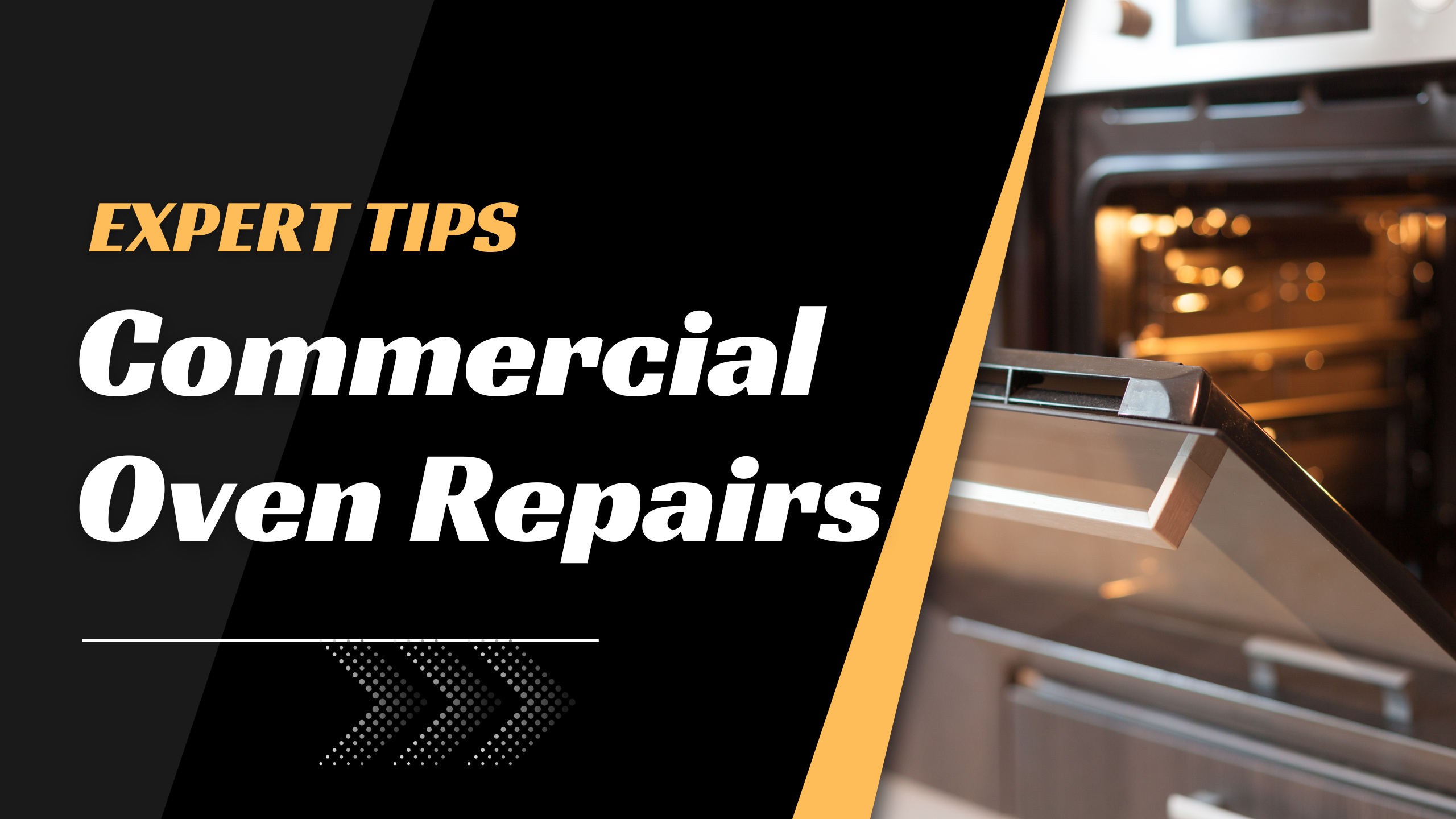A commercial oven is the heart of any professional kitchen, enabling the preparation of delicious meals and baked goods. However, like any complex appliance, commercial ovens can encounter issues that affect their performance and efficiency. Knowing how to address and resolve common problems becomes essential in such situations.
This article will provide expert tips for commercial oven repairs to help you maintain optimal functionality and avoid unnecessary downtime.
Tips for Commercial Oven Repairs
Understand the Oven’s Manual and Components
Before attempting any repairs or troubleshooting, it is crucial to thoroughly understand your commercial oven’s manual and its various components. Familiarize yourself with the oven’s control panel, heating elements, fans, thermostats, and safety features. This knowledge will empower you to identify potential issues and narrow down the cause of malfunctions more accurately.
Conduct Regular Cleaning and Maintenance
Regular cleaning and maintenance are vital for the proper functioning of a commercial oven. Develop a routine maintenance schedule that includes cleaning the oven interior, removing debris, and inspecting the heating elements and gaskets. Cleaning should be done using appropriate cleaning agents and following the manufacturer’s guidelines. Regular maintenance helps prevent the buildup of grease, residue, and other contaminants that can affect the oven’s performance and lead to potential breakdowns.
Monitor and Calibrate Temperature Settings
Accurate temperature control is crucial for consistent cooking results. Regularly monitor and calibrate your oven’s temperature settings to ensure they align with the desired cooking temperatures. Use an oven thermometer to compare the displayed temperature with the actual temperature inside the oven. If there is a significant discrepancy, it may indicate a thermostat or sensor issue that requires professional attention.
Address Uneven Heating
Uneven heating is common in commercial ovens and can result in unevenly cooked or baked food. If you notice hot spots or uneven temperatures inside the oven, check the positioning of the heating elements. Over time, elements can shift or become damaged, leading to inconsistent heating. Carefully inspect the elements for any signs of damage, such as visible cracks or discolouration. If damaged, replace the faulty elements promptly to restore even heating.
Replace Faulty Gaskets
The gasket is the rubber seal around the oven door that helps maintain heat and prevent energy loss. If you notice heat escaping from the oven or if the gasket appears damaged or worn, it is essential to replace it promptly. Faulty gaskets can lead to energy inefficiency and hinder the oven’s ability to maintain consistent temperatures. Replacing gaskets is typically a straightforward process and can be done using a replacement gasket recommended by the manufacturer.
Check and Maintain Fans and Motors
Commercial ovens often utilize fans and motors to distribute heat evenly and ensure proper airflow. Regularly inspect these components for any signs of wear, damage, or excessive noise. Lubricate the fan and motor bearings as the manufacturer recommends to maintain smooth operation. If you notice any unusual sounds or vibrations, it is advisable to contact a professional technician for further inspection and repairs.
Address Ignition and Pilot Light Issues
For ovens equipped with gas burners, ignition and pilot light problems can occur. If the pilot light fails to ignite or extinguishes frequently, it may indicate a clogged pilot or faulty ignition system. Clean the pilot assembly using compressed air and ensure the gas supply is unobstructed. If the issue persists, consult a professional technician to diagnose and repair the ignition system accurately.
Seek Professional Assistance for Complex Repairs
While some minor issues can be resolved through DIY efforts, complex repairs should be left to professional technicians. Commercial ovens are intricate appliances with gas or electrical components that require specialized knowledge and tools for proper diagnosis and repair. Attempting complex repairs without the necessary expertise can lead to further damage or pose safety risks. Hiring professional oven repair services ensures accurate diagnosis, efficient repairs, and adherence to safety standards.
Maintain a Record of Repairs and Servicing
Keeping a detailed record of all repairs, servicing, and maintenance activities performed on your commercial oven is essential. This record can help track the oven’s performance, identify recurring issues, and ensure timely servicing. It also serves as valuable documentation for warranty purposes and can assist technicians in diagnosing problems more effectively.
Regularly Train and Educate Staff
In addition to repairs and maintenance, providing proper training and education to your staff members is crucial for your commercial oven’s optimal use and care. Train your kitchen staff on the correct operation, cleaning procedures, and troubleshooting techniques for your oven model. Educating staff members about common issues and preventative measures can help minimize potential problems and improve the oven’s longevity.
The Bottom Line
Following these expert tips for commercial oven repairs can help ensure your appliance’s optimal performance, efficiency, and longevity. Regular cleaning, temperature monitoring, addressing uneven heating, replacing faulty gaskets, and seeking professional assistance for complex repairs are key practices to maintain a well-functioning commercial oven. By implementing these tips and prioritizing regular maintenance, you can minimize downtime, avoid costly repairs, and continue delivering exceptional culinary delights from your kitchen.
Read Related: Benefits of Professional Commercial Dishwasher Repair Services

 0800 644 2727
0800 644 2727
